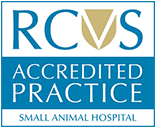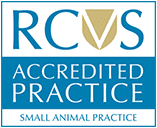Here at My Pets Vets we recognise that obesity is one of the major issues affecting pet health in the UK, but it is not always easy for an owner to recognise that their pet is overweight or obese. People tend to see overweight animals as well looked after and cuddly, but in reality they could be suffering from serious health conditions such as diabetes, heart disease and arthritis, that can lead to a reduced life expectancy.
WHAT IS OBESITY?
Obesity is a disease which can be defined as an excess of body fat that is enough to impair health, welfare and quality of life.
In people, this is generally recognised as being 20 – 25% above your ideal weight. In pets this is likely to be the same.
Over the last four years, the PDSA has assessed the weight and general health of nearly 30,000 canine companions across the UK. Over that time, the percentage of overweight dogs seen has risen from around one-in five (21%) to more than one-in-three (35%).
Should the next four years follow the same trend, then by 2018 nearly 50 % of UK dogs could be overweight. This means a reduced quality of life and the likelihood of an early grave due to obesity and its related health issues such as diabetes, heart disease and arthritis. The RSPCA also recognises obesity as an extremely serious welfare issue in pets, and it is a preventable problem.
WHAT CAUSES OBESITY?
Although some diseases can cause obesity, the main reason that pets become obese is because the food that they eat contains more energy than they use up. This means that if pets eat too much or do not do enough exercise they may become obese, just as we would if we ate too much, or did too little exercise.
WHAT ARE THE HEALTH RISKS ASSOCIATED WITH OBESITY?
Obesity can cause very serious health and welfare problems, and make existing problems worse. As a result it can reduce both the length and quality of a pet’s life.
A few examples of potentially serious medical conditions associated with obesity in pets include :
- Diabetes mellitus
- Orthopaedic disease such as arthritis
- Heart disease
- Respiratory distress
- High blood pressure
- Skin diseases
- Cancers
It is likely that obesity also affects a pet’s ability to perform a range of natural behaviours. For example, an obese pet may not be able to exercise (as it would choose to if it were not obese) without experiencing respiratory problems or heat stroke.
Owners that have successfully dieted their pets often remark that their companion is much happier as soon as they start to lose weight; again the same is often true in humans.
As vets, we recognise that it is harder to treat pets that are overweight or obese for a number of reasons:
- They are harder to examine, as it can be very difficult to hear
the heart or feel anything in their abdomen if covered with layers of fat. - We have to use a higher dose of X-rays if we need X-ray images,
and the picture that we get is often not as clear as it is in slim animals. - It can be harder to obtain a blood sample from an overweight animal as the blood vessels can be harder to find.
- Overweight or obese animals are considered a higher anaesthetic risk
as their internal organs, such as the heart and lungs, have to work harder. - The heavier an animal is the higher the dose of medication they need if they become ill, which results in higher medication costs to you.
HOW CAN I PREVENT MY PET FROM BECOMING OBESE?
As with humans, it is better to prevent obesity than have to diet your pet. We are able to offer you advise on how to do this at the surgery and offer free weight clinics with our nurses in order to help you keep your pet slim, or reduce its weight and waist line if necessary.
WHAT SHOULD MY PET LOOK LIKE?
- You should be able to see and feel the outline of your pet’s ribs without excess fat coverage.
- You should be able to see and feel your pet’s waist and it should be clearly visible when viewed from above.
- Your pet’s belly should be tucked up when viewed from the side.





